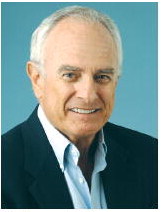Smith


Loran
Designated Hitter Blues
The designated hitter rule is coming to the National League, but I don’t have to like it. And I don’t. It is not official, but you can easily predict that the National League will cave on the issue when the next bargaining agreement is negotiated.
If I sound like the caustic manager of yesteryear, Sparky Anderson, then I am proud to be in his company. I was not a friend or confidante of the first manager to win the World Series in both leagues, but I had a conversation with him years ago about the DH. He detested the rule.
While in Detroit, in the early eighties, I went out to Tiger Stadium for a game and wound up behind the batting cage in conversation with Sparky, the loquacious manager who would engage in baseball talk with most anybody. I asked if I could turn on my tape recorder for a couple of questions. He was obliging. During a brief Q and A session, I asked him about the American League designated hitter rule.
“I hate the (expletive) rule,” he said. Then he was off and running. “I know it is part of the game over here, but I will never accept it. It is not baseball. They (American League officials) don’t like for me to talk about it, but I ain’t stopping. I will always speak out against the designated hitter. I am a traditionalist and I think the game is better when the pitcher has to bat for himself.”
Interestingly, he managed the Tigers for 17 seasons, winning the World Series there in 1984 after nine years with the Cincinnati Reds where he won World Series titles in 1975 and 1976.
When he was elected to the Baseball Hall of Fame in Cooperstown, N.Y., Sparky wore his Cincinnati cap although he managed almost twice as many years in Detroit as he did with Cincinnati. My guess is that he went to his grave holding loud contempt for the concept of the Designated Hitter.
In the National League, when the pitcher is coming to bat, that is the time most fans head to the popcorn stand. When the pitcher is batting, that is the time to take a bathroom break, but you better hurry. Three quick fastballs down the middle and in less than three minutes, the pitcher may be walking back to the dugout. That is why there is a legion of baseball fans, who think it is a joke to have the pitcher spend time in the batter’s box.
You would think that the DH would be offensive to Babe Ruth, who not only could hit (.342 lifetime average with 714 home runs), he could pitch. He won 89 games as a pitcher with the Red Sox and five with the Yankees to whom he was traded following the 1919 season. During his years in Boston, the Babe batted over .300 every year but two as a pitcher and one of those years was his first year in which he only played five games. In 1917, he won 24 games and batted .378 with 40 hits, which included three triples and two homeruns.
And, what about the late Tony Cloninger of the Braves. In a game at San Francisco in 1966, Cloninger blasted two grand slam home runs to become the only pitcher to pull that off. He also singled in a run for a total of nine RBI’s for the day. Not even the Babe, when he was a full-time hitter, ever had a game like that. Rick Wise, of the Phillies, had himself a banner day when he no-hit the Reds in Cincinnati in 1971; he also hit two home runs, but the magnitude of his hitting prowess pales when compared continued from page
to Cloninger’s performance at the plate.
The Braves’ Warren Spahn hit 35 homers in his Big League career, another pitcher whom you could not take for granted when he was at the plate.
The National League utilized the DH during the pandemic season of last year, but reverted back to the old rule this season with the pitchers being required to bat. Somewhere, Sparky Anderson is smiling.
Jake Westbrook, Athens native, who was raised on Zeb’s barbecue nearby, grew up a traditionalist, which is why he prefers the rule not change. However, he remembers that when in a tough pitcher’s duel, it would have been nice to have a big bat in the lineup. “That offense,” he says, “could have come in handy.”
Keep the pitcher out of the batter’s box and Jake would not have had that magical moment when he hit a grand slam for the Cardinals Aug. 31, 2011, in Milwaukee, as St. Louis won 8-3. It was the first time he had ever hit a home run. For it to be a grand slam, that took away all memories of any failures at the plate in his career.
“If it were up to me, I would do away with the DH,” he said earlier this week. “I guess I am old school, but I can understand why there are many out there who are for the DH.”
My parting shot: Keep the pitchers in the batter’s box so Sparky Anderson can rest in peace.








